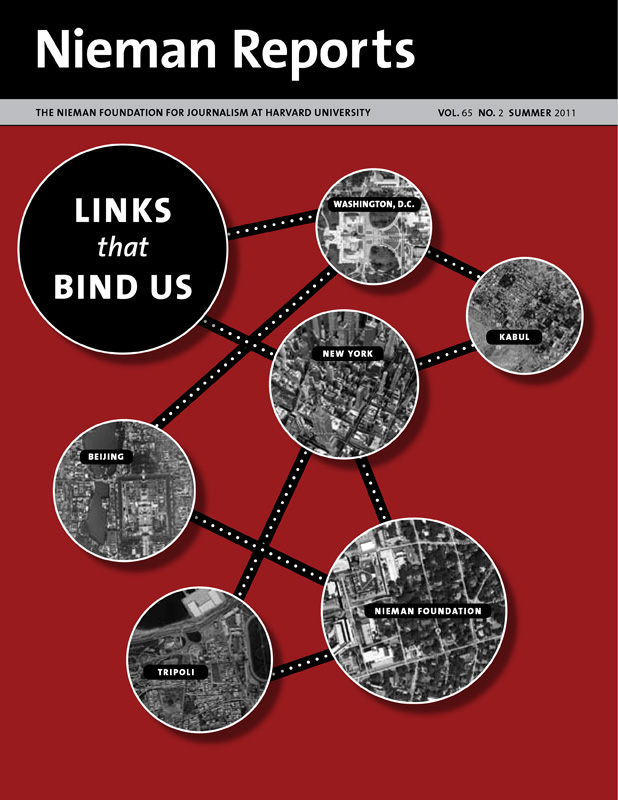RELATED ARTICLE
“The Inner Fire of Muckraking Journalists”
-Steve WeinbergIn 1989, Little, Brown and Company published my biography of industrialist Armand Hammer, and then Hammer sued me for defamation, as we knew he would, given his opposition to the truth of his career being exposed.
As preparation for the libel trial moved ahead, I wanted to begin a new biography of another legendary character: Jack Anderson. I researched and wrote a book proposal, obtained a contract, and moved forward. But then a change at the top of the publishing house occurred, which would have led to cancellation of the libel insurance we had agreed upon. I abandoned the book after failing to find a satisfactory publisher. Instead, I wrote several magazine features about Anderson—two of which are mentioned in Mark Feldstein's bibliography.
Eventually I heard that Mark would be writing about Anderson at book length so I contacted him and offered whatever research materials I still possessed. He accepted the offer.
I've known Mark through our mutual affiliation with Investigative Reporters and Editors (IRE). In 1976, when I was a Des Moines Register reporter, I was involved with IRE in its infancy, and seven years later, I moved to Columbia, Missouri to become its executive director, a position I held for seven years. I stayed on part time as editor of its magazine until a few years ago. I also knew Anderson.
“The Inner Fire of Muckraking Journalists”
-Steve WeinbergIn 1989, Little, Brown and Company published my biography of industrialist Armand Hammer, and then Hammer sued me for defamation, as we knew he would, given his opposition to the truth of his career being exposed.
As preparation for the libel trial moved ahead, I wanted to begin a new biography of another legendary character: Jack Anderson. I researched and wrote a book proposal, obtained a contract, and moved forward. But then a change at the top of the publishing house occurred, which would have led to cancellation of the libel insurance we had agreed upon. I abandoned the book after failing to find a satisfactory publisher. Instead, I wrote several magazine features about Anderson—two of which are mentioned in Mark Feldstein's bibliography.
Eventually I heard that Mark would be writing about Anderson at book length so I contacted him and offered whatever research materials I still possessed. He accepted the offer.
I've known Mark through our mutual affiliation with Investigative Reporters and Editors (IRE). In 1976, when I was a Des Moines Register reporter, I was involved with IRE in its infancy, and seven years later, I moved to Columbia, Missouri to become its executive director, a position I held for seven years. I stayed on part time as editor of its magazine until a few years ago. I also knew Anderson.



